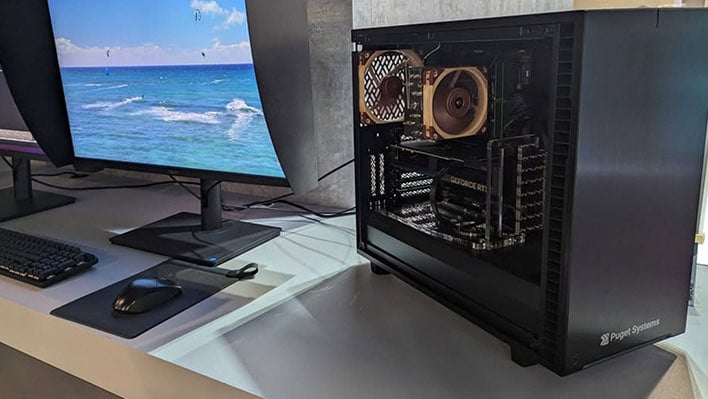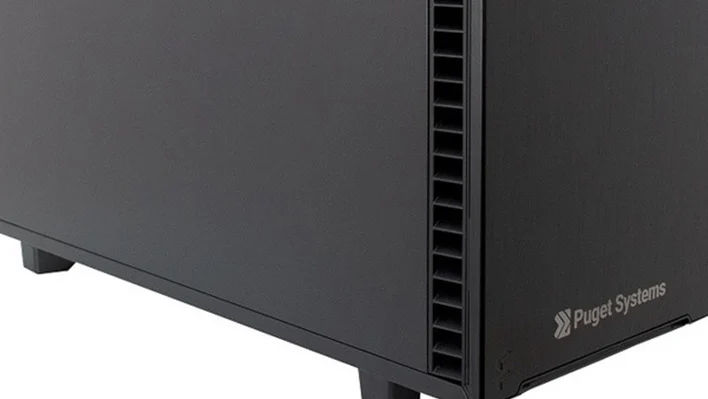Buying or building a PC in 2025 has been no easy task, but Puget Systems is tackling
tariffs with transparency. With both availability and pricing proving to be highly unpredictable, consumers have been left in the dark with what the short term status is of the current market. According to Puget, the recent tariffs have indeed impacted many industries, and it even feels that some firms are taking advantage of the situation of what it calls "FUD". (fear, uncertainty, doubt)
We have seen prices of hot products such as NVIDIA's entire GeForce RTX 50 series skyrocket beyond the baseline MSRP (NVIDIA's add-in board partners routinely charge premiums for custom models, but they're more expensive this round), with models such as the GeForce RTX 5090 eclipsing the $3,000 mark and beyond. According to Puget Systems, there is a 20% total tariff that is made up of two separate 10% tariffs that are creating this increased cost. There are also more tariffs expiring in June, so that total could well be considerably higher.
Puget Systems builds workstations with products from the big manufacturers. While they are not a gaming PC shop per se, many of the components are shared between gamers and workstations. Gamers will be keenly aware of this due to past shortages with crypto mining and now with the demand for AI machine learning workloads.
Puget Systems also clearly outlines how the tariffs are directly affecting pricing, so the consumer can be educated on what is going on. Simply, the components that it uses for its systems now cost more due to these tariffs, and thus the cost overall increases. Even components that are indirectly affected, such as PCBs for other components, also are experiencing price increases.
While GPUs such as the
GeForce RTX 5090 are in the spotlight with its high-profile and increasing price, it is clear that almost all important PC components are affected by similar turbulence in pricing. Puget Systems also points out that "Market and Inflationary Impacts" are a key point. In simple terms, this means that the economic can suffer and thus demand will decrease or shift, adding to uncertainty.
Puget Systems is trying to organize its strategy to these rapid changes in the best manner possible, which includes absorbing some cost and prioritizing items such as GPUs. It also outlines the various components that are affected, giving consumers some light on to what is going on behind the scenes.
Simply put, Puget Systems is willing to take the hit instead of passing the tariffs on to the customer, albeit in the short term (price increases will eventually come). Additionally, Puget says its using its inventory strategically to minimize immediate cost increases.
"We already have had to carry a ridiculously high amount of inventory to smooth out supply shortages, and this works in our favor… even if that is only to buy us some time for the dust to settle and for our cost impacts to be better understood. We run our company debt-free, and we use our purchasing power and cash reserves to carry even more inventory during volatile times," Puget states in a
blog post.
It also covered a couple of other strategies it's employing to minimize the fallout, including maintaining close relationships with suppliers and ODM partners, and prioritizing its attention on high impact items (especially GPUs) where tariffs could be felt more significantly on the consumer side. But it's the willing to absorb costs, to an extent, that should win the company favor.
"We absorb initial cost changes on many components. We adjust our pricing when ongoing long-term costs are clear, and absorb differences otherwise. This reduces noise and prevents us from making many nickel-and-dime changes," Puget states.
Refreshing, right? This communicative approach is excellent, and really sheds light on the difficulty that system integrators are experiencing now. Even if you're building your own PC, you will encounter these same issues on a smaller scale for each component that you try to source. That said, we like the transparency by Puget, and hope that other system builders will take note.




